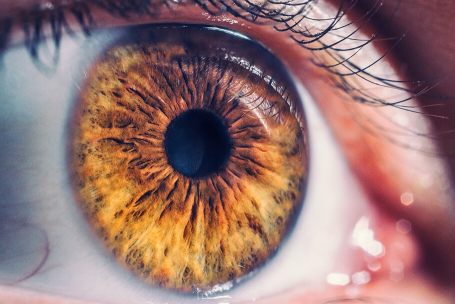Macular degeneration, also known as age-related macular degeneration (AMD), is a common eye condition that primarily affects older adults. It results in the gradual deterioration of the macula, the central part of the retina responsible for sharp, central vision.
As a progressive disease, macular degeneration can lead to significant vision loss, especially when left untreated. Early diagnosis and timely treatment are essential for managing this condition and preserving vision.

What is Macular Degeneration?
Macular degeneration is a condition that damages the macula, the part of the retina responsible for fine, central vision. The macula is essential for tasks that require sharp eyesight, such as reading, driving, and recognizing faces. In macular degeneration, the macula gradually deteriorates, leading to blurred or distorted vision. There are two main types of macular degeneration: dry macular degeneration and wet macular degeneration.
- Dry Macular Degeneration: This is the more common type, where the macula becomes thinner over time, leading to gradual vision loss.
- Wet Macular Degeneration: This type occurs when abnormal blood vessels grow under the macula, leaking fluid or blood that causes more rapid damage.
Causes and Risk Factors
The exact cause of macular degeneration is not fully understood, but several risk factors can increase the likelihood of developing the condition:
- Age: The risk increases with age, especially for individuals over 50. AMD is more common in those aged 60 and older.
- Genetics: Family history plays a significant role, and people with a first-degree relative with AMD are at higher risk.
- Smoking: Smoking is a significant risk factor and can accelerate the progression of AMD.
- Diet and Lifestyle: Poor diet, particularly one low in antioxidants and vitamins, may contribute to AMD development. Lack of exercise and obesity can also raise the risk.
- Other Health Conditions: Individuals with cardiovascular diseases, hypertension, and diabetes may have a higher risk of developing AMD.
Symptoms of Macular Degeneration
The symptoms of macular degeneration can vary depending on the type and stage of the condition. Common symptoms include:
- Blurred or Distorted Vision: Central vision becomes blurry, making it difficult to read or recognize faces.
- Dark or Empty Spot in the Center of Vision: As the macula deteriorates, individuals may notice a dark or empty spot in their central vision.
- Straight Lines Appear Wavy: In wet macular degeneration, abnormal blood vessels can cause straight lines to appear wavy or distorted.
- Difficulty with Low-Light Vision: Difficulty seeing in dimly lit environments is also a common symptom of AMD.
In the early stages, symptoms may be mild and not noticeable, but as the disease progresses, vision loss can become more pronounced.
Diagnosis
Diagnosing macular degeneration requires a comprehensive eye exam performed by an ophthalmologist. The following tests may be used to confirm the diagnosis:
- Dilated Eye Exam: The doctor will dilate the pupils to examine the retina and macula closely.
- Amsler Grid Test: This simple test checks for any distortion in vision. Patients are asked to look at a grid of straight lines to see if any areas appear wavy or missing.
- Optical Coherence Tomography (OCT): OCT uses light waves to create detailed images of the retina, helping to detect thinning or swelling that could indicate macular degeneration.
- Fluorescein Angiography: This test involves injecting a dye into the bloodstream to evaluate the blood vessels in the retina and detect any leakage or abnormal growth of blood vessels.
Treatment Options
While there is no cure for macular degeneration, various treatment options can help slow down the progression of the disease and improve quality of life:
1. For Dry Macular Degeneration:
Currently, there is no FDA-approved treatment for dry AMD, but certain measures can slow the progression:
- Vitamin and Mineral Supplements: Research has shown that a combination of vitamins C and E, zinc, copper, and beta-carotene may help slow the progression of dry AMD in certain individuals.
- Dietary Changes: Eating a diet rich in antioxidants, including leafy greens, fish, and fruits, can help protect the retina.
- Smoking Cessation: Quitting smoking is crucial in preventing further damage to the macula.
2. For Wet Macular Degeneration:
Wet AMD is more aggressive but can be treated with the following methods:
- Anti-VEGF Injections: Medications that inhibit the growth of abnormal blood vessels in the retina can be injected directly into the eye. These injections help reduce fluid leakage and preserve vision.
- Laser Therapy: In certain cases, a laser can be used to destroy abnormal blood vessels and prevent further damage.
- Photodynamic Therapy (PDT): A light-sensitive drug is injected into the bloodstream, which is then activated by a laser to destroy abnormal blood vessels under the retina.
Living with Macular Degeneration
While macular degeneration can affect daily activities, individuals with AMD can adopt various strategies to maintain their independence:
- Low Vision Aids: Magnifiers, special glasses, and electronic devices can help people with AMD continue tasks like reading, watching TV, or using a computer.
- Home Modifications: Improving lighting, reducing glare, and organizing living spaces can make it easier for people with macular degeneration to navigate their environment.
- Regular Monitoring: Routine eye exams and monitoring any changes in vision are crucial for managing the condition and adjusting treatments as necessary.
Conclusion
Macular degeneration is a progressive condition that can cause significant vision loss, but with early detection and appropriate treatment, it is possible to slow its progression and preserve vision. Regular eye exams, especially for those at higher risk, are crucial for early diagnosis. If you notice any changes in your vision, particularly distortion or difficulty with central vision, consult an eye care professional immediately. With proper care and management, people with macular degeneration can continue to lead active and fulfilling lives.





